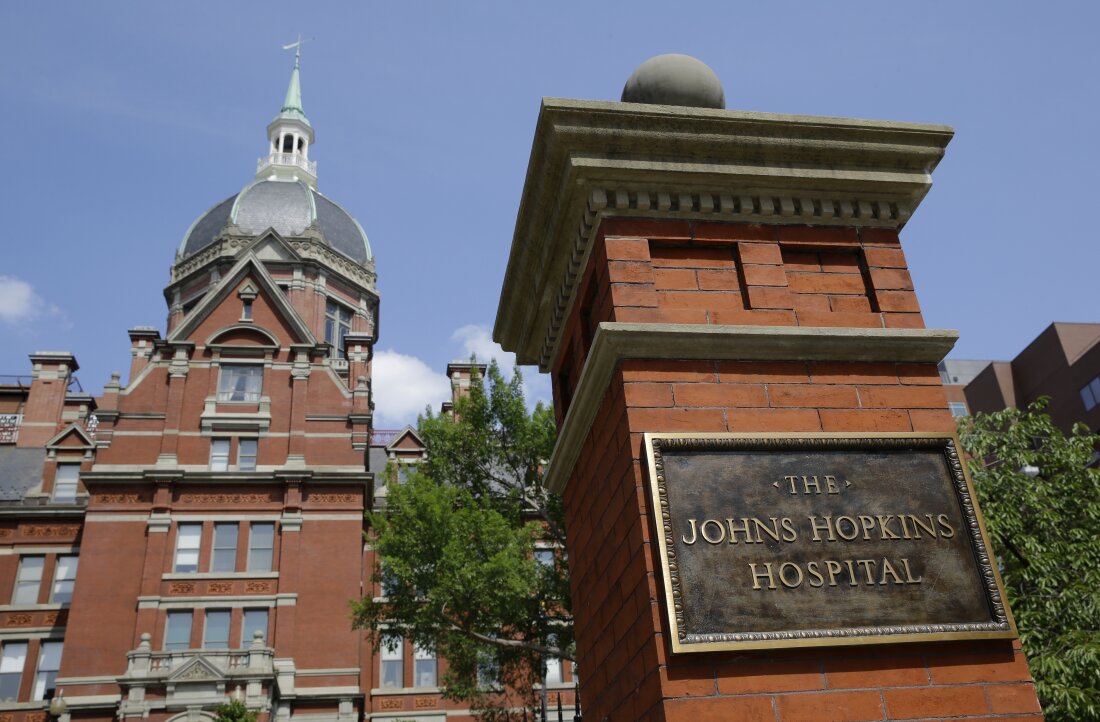Applying to the MSAE Program
Why Apply?
There are numerous reasons to pursue graduate training in anatomy from Johns Hopkins. While many of these reasons undoubtedly overlap for a range of backgrounds and career goals, others will be more specific. We therefore encourage everyone with an interest to reach out, and let’s discuss what benefits the program may have for you, especially as a central goal is flexibility. That stated, many of our applicants are considering the program as a stepping stone either to medical school or a Ph.D. program. Below are some thoughts of how the MSAE aligns with those trajectories.

Medical School
The MSAE program represents an opportunity to explore your interests and expand your experiences in an exciting, dynamic, biomedical community, while at the same time gaining basic skills that many leading medical programs no longer offer. Medical school anatomy courses are being increasingly being compressed and trimmed as the breadth of pre-clinical education expands. Classic, dissection-based cadaveric anatomy is now commonly replaced with a combination of prosections, models, and digital resources. If a full dissection-based exploration of human anatomy is something you envision as part of your medical education, then a Johns Hopkins gap year is perhaps ideal. Gaining advanced anatomical knowledge now will allow one to confidently enter a medical program that excels in other ways but does not emphasize anatomy as foundational knowledge. Likewise, the advantages of advanced training in the art and science of education/communication is well evidenced by the number of medical students and professionals who seek these opportunities at later stages in their career path. Finally, for students looking to bolster their medical school applications, the MSAE provides a number of diverse opportunities. These include empirically establishing your ability to flourish in grade-based coursework that reflects many aspects of a 1st-year medical school curriculum and gain unique research experiences that can help set your application apart – all through what is unquestionably a premier medical school and rigorous academic institution.
Ph.D. Programs
For many students, a masters program is an important step in gaining admission to a Ph.D. program and achieving success in an increasingly competitive post-graduation marketplace – both within and outside academia. The Ph.D. is a research degree and entering a Ph.D. program represents the winding of a critical clock for a research career. Most Ph.D. programs are between three and six years, which may seem like a long time but is remarkably brief when considering all that must be achieved. A low-pressure year spent expanding one’s knowledge base, acquiring critical research and communication skills, and simply exploring ideas and opportunities within a world-class research institution is hugely beneficial for most aspiring Ph.D. students. In addition, the MSAE program provides successful students access to the vast research networks represented by Hopkins faculty, increasing the probability of matriculation into top Ph.D. programs.
Most science faculty enter the classroom with little-to-no formal training in education. This is a disadvantage in a world where teaching quality and student evaluations increasingly bear weight in promotion and tenure decisions. The MSAE program provides aspiring Ph.D. students with valuable teaching and communication skills before entering their doctoral program. For students specifically interested in pursuing a Ph.D. in the anatomical sciences, establishing your ability to teach medical school-level anatomy may prove critical as this training opportunity is not offered in most doctoral programs.

FAE Center
A notable benefit of the MSAE program is that you are an integral member of a vibrant, top-notch scientific group with wide-ranging expertise. We are a supportive and diverse community of faculty, postdoctoral fellows and graduate students who share a mutual excitement about the myriad opportunities for intellectual growth in the stimulating academic environment at Johns Hopkins University School of Medicine.
